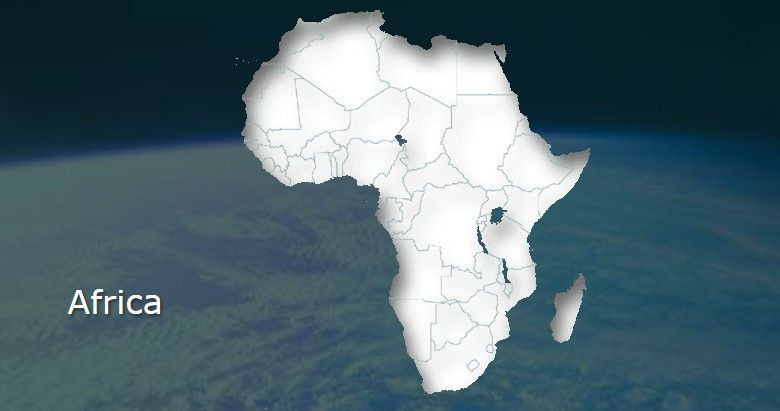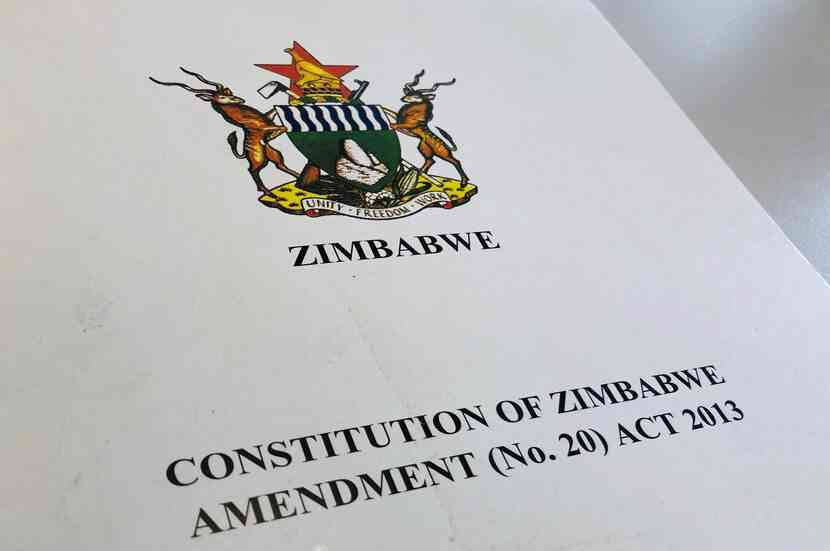
IN this era of rapid technological advances, Zimbabwe, as with many nations emerging on the global stage, has enthusiastically embraced artificial intelligence (AI) as a symbol of progress and modernity.
Many professionals now boast of their “collaboration with AI”, claiming increased productivity and innovation across sectors such as finance, agriculture, and media.
However, while the integration of AI into our professional lives offers undeniable benefits, it also presents a latent danger: the risk of outsourcing our very capacity for critical thinking, self-reliance, and original strategy.
What is unfolding in boardrooms and meeting rooms throughout our country is not a revolution of thought but rather a worrying delegation of our cognitive responsibilities.
When AI is used as a substitute for deliberate human thought, rather than as an assistant to enhance it, we are at risk of creating a generation of professionals who cannot defend their work or, indeed, think independently.
Consider the cautionary tale of a marketing director who, after six months of relying solely on ChatGPT to craft campaigns, found herself unable to explain any of the underlying strategy when challenged by a client.
Her apparent productivity boost turned into a glaring vulnerability; the creative and strategic inputs had been outsourced entirely to an algorithm.
This scenario is neither exceptional nor isolated. It is a microcosm of a broader trend now unfolding, as professionals across Zimbabwe adopt AI with little understanding of the intricacies behind these systems.
- I rejected Zanu PF scarf: Burna Boy
- NMB workers take on employer
- Mbavara eyes to resurrect Matavire’s music legacy
- I rejected Zanu PF scarf: Burna Boy
Keep Reading
The danger is reminiscent of the way widespread dependency on GPS navigation has dulled our innate sense of direction. Just as we may now struggle to navigate without a digital assistant, our intellectual muscles, our capacity to reason, analyse, and innovate, may atrophy if we allow machines to do our thinking for us.
In Zimbabwe, where the digital revolution is tightly interwoven with our rich tapestry of local knowledge and traditional practices, the implications of such dependency are particularly acute.
The pressure to keep pace with global technological trends is immense, and the promise of accelerated productivity is undeniably seductive. Yet, over-reliance on AI may undermine the quintessentially Zimbabwean spirit of ingenuity and resourcefulness.
Many professionals and entrepreneurs, inspired by the potential of these tools, are at risk of becoming overly reliant on them. Instead of standing shoulder-to-shoulder with the technology, using it to augment their insights and expertise, they risk surrendering their creative and analytical faculties.
This could have far-reaching consequences not just for individual careers but for the broader socio-economic transformation and development of our nation.
The phenomenon of cognitive outsourcing is not confined to marketing or urban corporate settings. In the agricultural sector, for instance, smallholder farmers are increasingly exposed to AI-powered weather forecasts, pest detection systems, and market analytics.
These innovations, when employed judiciously, can revolutionise farming practices and increase yields. However, if these farmers are not supported by a robust framework of education and technical training, they might misuse or misunderstand the data provided to them.
Worse still, reliance on such tools without a deep grasp of the local farming context could lead to misinformed decisions on planting, harvesting, or resource allocation.
Much like the marketing professional who lost the ability to articulate her strategies, a reliance on AI in agriculture, devoid of human insight, could leave farmers vulnerable to errors that jeopardise not only their livelihoods, but also the food security of entire communities.
The situation is no less problematic in the financial services sector. Zimbabwe’s banks and microfinance institutions are harnessing AI to streamline operations, detect fraud, and optimise risk assessments.
While these applications of AI enable quicker decision-making and more efficient service delivery, there is a danger that practitioners may come to rely on automated reports and insights without fully understanding the underpinning models.
A loan officer, who blindly trusts AI-generated risk scores, without applying their judgment and contextual knowledge about the local economy, may inadvertently approve risky loans or overlook subtle indicators of financial distress.
In a country grappling with economic challenges and striving for inclusive growth, such lapses in critical assessment can have profound consequences for both the consumers and the broader financial ecosystem.
The broader professional landscape in Zimbabwe is thus at the crossroads. On one hand, there is the allure of AI as a tool for unprecedented efficiency and insight.
On the other hand, there is the insidious threat of intellectual complacency, a scenario where professionals, in their bid to maximise productivity, gradually cede their capacity for analytical reasoning and strategic planning.
This “AI-first” trap is dangerous precisely because it appears to be a step towards modernisation. Yet, in reality, it may be a regression in the critical skills that underpin genuine innovation and adaptive problem-solving.
Dialogue between industry leaders, educators, and technologists is essential if Zimbabwe is to harness the potential of AI without falling prey to its pitfalls.
For instance, universities and professional training institutions must reconsider their curricula to ensure that students understand both the benefits and limitations of AI.
Rather than simply teaching how to use tools such as ChatGPT or automated analytics platforms, there must be an emphasis on the underlying principles of these technologies.
This includes a thorough grasp of algorithmic logic, data biases, and critical evaluation techniques. If professionals are to collaborate with AI in a meaningful way, they must be equipped to question and challenge the outputs generated by these systems.
Moreover, the government and regulatory bodies have a crucial role to play in this technological transition. Policies should be designed to promote digital literacy and foster an environment where AI is seen as an aid to human ingenuity rather than a replacement for it.
In a nation such as Zimbabwe, where innovation is often spurred by necessity and a deep understanding of local contexts, it is particularly important to ensure that technology serves to enhance traditional skills rather than supplant them.
This means investing in educational programmes, workshops, and community outreach initiatives that demystify AI and encourage a critical approach to its use.
The healthcare sector also offers illuminating examples of both the potential and the pitfalls of AI collaboration.
There are initiatives in Zimbabwe where AI systems assist in patient diagnosis, predict disease outbreaks, and manage medical records more efficiently. These advancements are undoubtedly beneficial and can lead to improved patient outcomes.
However, if healthcare professionals become overly reliant on AI-generated diagnostics without sufficient clinical oversight, there is a real risk of misdiagnosis or the overlooking of subtle symptoms that require human expertise.
A doctor’s ability to synthesise AI data with years of clinical experience is indispensable if the technology is to be a true asset rather than a liability.
This delicate balance between human insight and machine efficiency must be maintained across all sectors. Professionals should view AI as a research assistant, a means to gather data, identify patterns, and generate preliminary ideas — but not as the final arbiter of decision-making. In the words of a wise adage, it is not the tool that defines the craftsman, but the craftsman who wields the tool.
The future of Zimbabwe’s professional landscape hinges on our ability to integrate AI in a way that preserves our critical faculties. We must encourage a culture of perpetual learning, where the use of AI is paired with rigorous self-reflection and continuous skill development.
A practical approach to this challenge might involve deliberate “AI detox” sessions in professional settings. For instance, teams could set aside regular intervals to discuss and critique the outputs generated by AI tools, ensuring that every idea is backed by human reasoning.
This dialogue not only reinforces individual understanding but can spark innovative intersections between human creativity and machine efficiency. Consider the humble beginning of traditional brainstorming sessions, where ideas were exchanged freely and critically examined.
A modern twist on this hour-old practice could involve a hybrid approach, where AI-generated drafts are meticulously scrutinised and improved upon by teams, rather than being accepted at face value as the final product.
The cultural implications of such practices are particularly resonant in Zimbabwe. Our nation has a long history of resilient, community-oriented problem-solving.
By fostering environments where professional development is both technologically-advanced and deeply-rooted in critical, independent thinking, we can ensure that the Zimbabwean workforce retains its unique strengths even as it embraces global innovations.
This dialogue between tradition and technology is not an either/or proposition; rather, it represents a synthesis where AI catalyses enhanced human performance, rather than a crutch that weakens it.
Critics might argue that the pace of global technological progress leaves little room for such cautious approaches. They contend that the fast-changing digital landscape demands rapid adaptation, and that halting to reflect on the risks of dependency slows down progress.
However, this perspective overlooks the long-term costs of intellectual inertia. Without the capacity for self-critical thought and strategic reasoning, the apparent gains in productivity may be unsustainable in the face of unforeseen challenges.
In such a scenario, Zimbabwe risks not only economic setbacks but also a broader cultural shift where the depth of human insight is sacrificed at the altar of expediency.
In practical terms, the solution lies in a conscious effort to integrate AI into our workflows without allowing it to supplant our cognitive functions.
Professionals must be trained not only in how to use AI, but in how to question and verify its outputs. They must retain the ability to explain, defend, and build upon the work that these algorithms help produce.
This involves a paradigm shift — a move away from the notion of AI as a magical silver bullet, and towards the recognition of it as a powerful tool that must be wielded with responsibility and critical awareness.
For Zimbabwean businesses and organisations, this means investing in continuous professional development programmes that strike a balance between technological fluency and deep analytical skills.
Workshops, seminars, and collaborative sessions where the focus is on the “how” and the “why” behind AI outputs can serve as a bulwark against the erosion of critical thinking.
Senior executives, in particular, must lead by example, showcasing not only adeptness at leveraging AI, but also the intellectual rigour required to question its limitations.
By doing so, they can inspire a new generation of professionals who are not only efficient but also intellectually agile.
Indeed, the challenge before us is not simply one of technological integration, but of cultural transformation. Zimbabwe is at a pivotal moment where the narrative of professional growth must evolve from one of blind reliance to one of informed collaboration.
The story of the marketing director who was unable to defend her campaign strategy is a stark reminder of what can happen when we abdicate our thinking to machines.
Rather than being seen as a harbinger of doom, AI should be viewed as an opportunity — a means to refine our strategies, bolster our understanding, and ultimately, to drive sustainable socio-economic development.
The crux of the matter is not a battle against AI, but against the complacency and cognitive outsourcing that it can inadvertently encourage.
Zimbabwe, a nation known for its resourcefulness and ingenuity, must navigate the digital age with a clear-eyed vision: to harness AI as an extension of human capability, rather than a replacement for it.
The future we build depends on balancing the strengths of technology with the irreplaceable value of critical, independent thought.
Only then can we ensure that our journey towards progress is not marred by a gradual erosion of the very skills that have long defined our professional and cultural identity.
As we stand at this crossroads, the dialogue around AI must be open, critical, and continuous. Every professional, whether in Harare’s bustling financial centres, in rural communities where technology is just beginning to take root, or within the corridors of our universities, must ask themselves: "Am I using AI to think better, or is it doing all the thinking for me?"
This question, simple in its phrasing, holds profound implications for our careers, our industries, and ultimately, the future of Zimbabwe as a dynamic, self-reliant economy in the global digital landscape.
The evolution of AI is not a fleeting trend but a fundamental shift in the way we operate. However, as we integrate these tools into our everyday lives, we must do so with mindfulness and intentionality.
Let us ensure that every instance of AI adoption is accompanied by robust discussions, critical reflections, and an enduring commitment to continuous learning. By combining our rich legacy of critical thought and creativity with modern technological capabilities, we can foster a professional environment where the human mind remains the ultimate decision-maker, a catalyst for innovation and a guardian of our cultural identity.
In embracing AI as a complementary partner in our professional endeavours, Zimbabwe can not only catch up with global trends but also set new standards for sustainable development and innovation.
The future belongs to those who can skilfully navigate the delicate interplay of technology and human thought. In this delicate balance lies our true potential, a future where the brilliance of Zimbabwean ingenuity converges with the cutting-edge promise of AI to create a society that is both economically dynamic and intellectually vibrant.
My clarion call: Now is the time for a renewed commitment to intellectual rigour, one that champions critical dialogue, celebrates the spirit of inquiry, and resists the allure of effortless dependency.
Sagomba is a doctor of philosophy, who specialises in AI, ethics and policy researcher, AI governance and policy consultant, ethics of war and peace research consultant, political philosophy and also a chartered marketer. — [email protected]/ LinkedIn; @ Dr Evans Sagomba/ X: @esagomb











